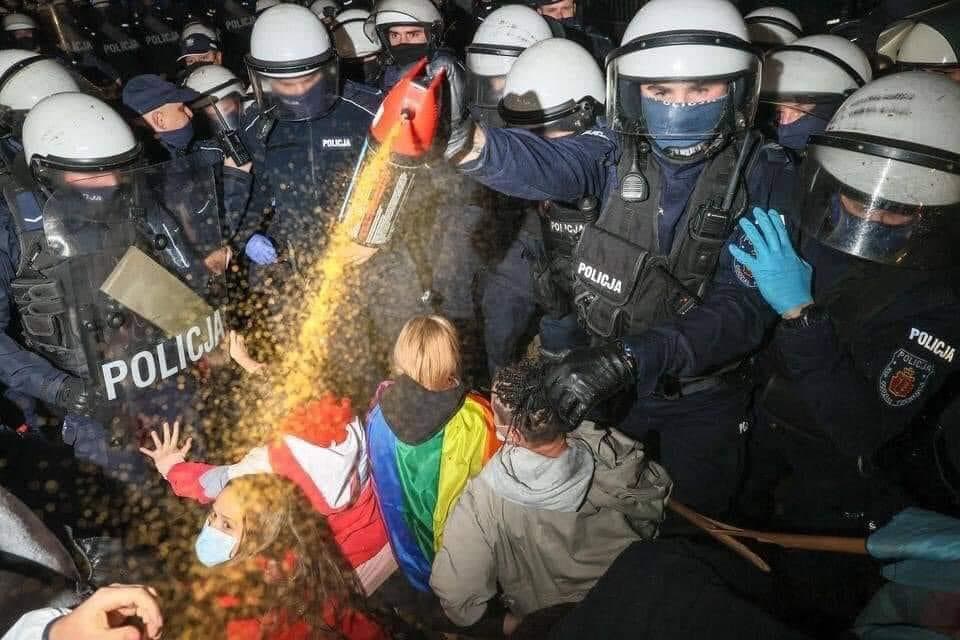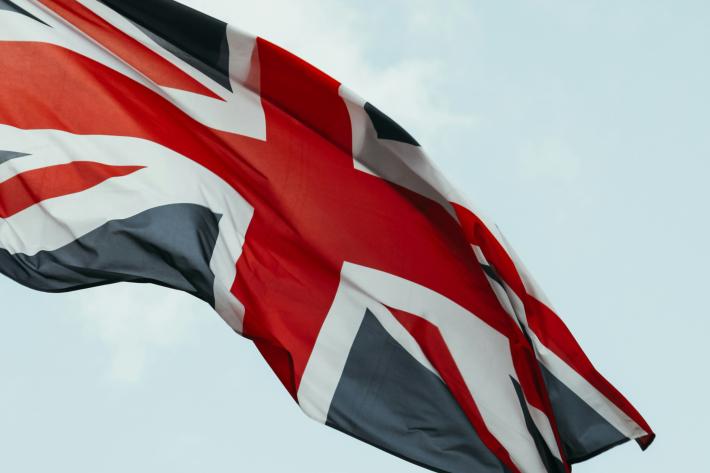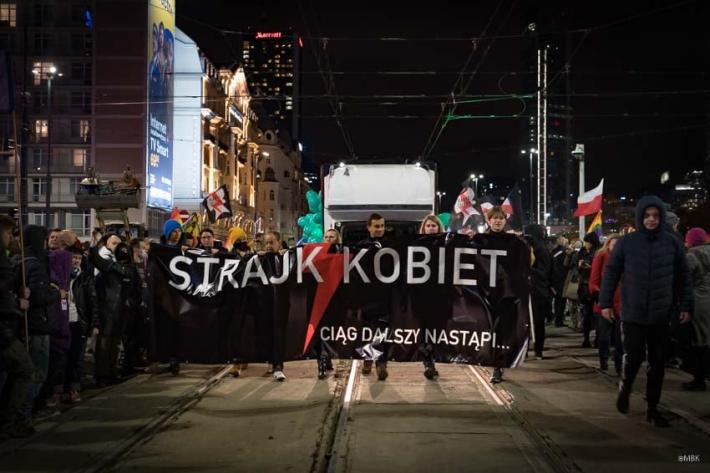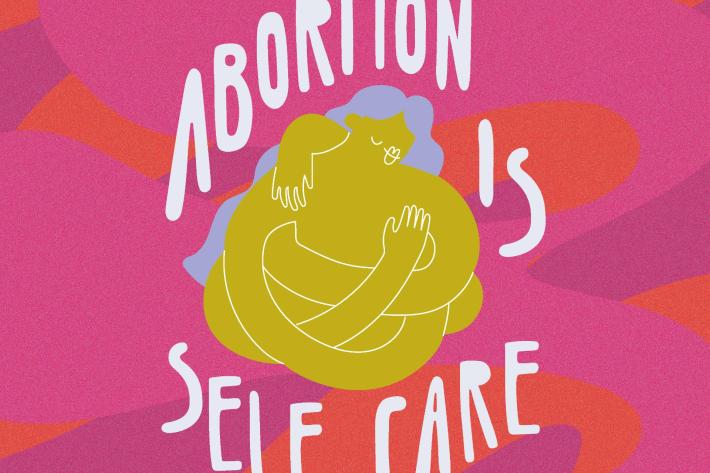
Spotlight
A selection of news from across the Federation

European Commission's new Women's Rights Roadmap includes SRHR—Now we need action
On 7 March, the EC released a new political declaration committing to uphold and advance women's rights. We welcome the inclusion of SRHR and other key topics. Now impactful actions are needed.
Filter our news by:

| 02 June 2021
Laiga launches map that provides information on abortion care in Italy
In Italy, even after 43 years from the adoption of Law 194 of 1978, access to abortion care is complicated due to arbitrary and painful hurdles. According to the law, women need to meet a doctor who certifies their abortion request. However, about 70% of the doctors in Italy deny abortion care based on their personal beliefs or convenience (art. 9 of the abortion law). Moreover, after having obtained the certificate from a doctor, women need to “postpone the decision for seven days” (art. 5 of the abortion law), thus being forced to endure a medically unnecessary waiting period. On top of all of this, there is no official information about how and where to access abortion (no institutional website, no specific sections on hospital websites, no national help-line). According to the law, all hospitals and authorised clinics must provide abortion care (art. 9 of the abortion law), but as per the last report from the Health Ministry published in 2018, in practice only about the 65% of them do offer care. Women in Italy continue to face an unacceptable array of obstacles to abortion care and some of these stem from lack of information. So, where to find information to understand how and where to access abortion care in Italy? Laiga, Free Italian Association of Gynaecologists for the implementation of Law 194, an association born in 2008 to gather all abortion providers and spread information on the application of the law and the right to abortion, just published a national map listing all hospitals and clinics providing this health care service, including telephone numbers and addresses. “It has been a very big and challenging project for the association, which took a long time and a lot of energy. During the pandemic all the information we collected in the previous years were changing, many hospital sectors closed either temporarily or permanently. Finally, as a gift to everyone who wants their right to abortion guaranteed, for the 43rd anniversary of the Italian abortion law, Laiga made it!”, said Silvana Agatone, Laiga President. Moreover, Laiga's website also clearly explaines how abortion care can be accessed in Italy: the law and the details around access, a tool to calculate the gestational age, which documents are needed, the different abortion procedures, and finally information on contraceptive care. Through the website and this map, Laiga wants to provide what is needed to actually access care, saving precious time and avoiding delays that might harm women. By Giorgia Alazraki, Laiga Read the press release of Laiga in English.

| 21 May 2021
EuropeWeWant statement on the Future of Europe
Europe is facing unprecedented global and local challenges. Rising authoritarianism continues to place European democracy at risk. We need urgent action to achieve a pandemic recovery that will reshape society, as well tackle climate change, inequalities, and the design and control of new technologies. This must be a watershed moment to set Europe on a transformation towards a just, sustainable, democratic, and inclusive society. This is the moment to set in motion a transformation, shaped by citizens and civil society. We cannot afford to be complacent. The Conference on the Future of Europe, in these unprecedented times, is the opportunity for European leaders to finally address these priorities and guarantee rights: All European residents must have the right to access and participate in European decision-making, holding European decision-makers accountable. Independent Europe-wide citizen assemblies have a role to play in European decision-making processes. Organised civil society and trade unions must thus have a seat at the table at the Conference, and European leaders must therefore create an enabling space for civil society and social partners for a robust European democracy, during the Conference and beyond. Everyone must have the right to live in a healthy, sustainable, and safe environment that enables human prosperity. This necessarily means that global warming must be kept if possible to 1.5 degrees as prescribed by the Paris Agreement. Europe must take its fair share of climate action based on science and historical responsibility and do so by pursuing quality as well as quantitative targets that leaves nobody behind. A just green transition must lead to an inclusive society that provides social protection with equal opportunities and access for all, also thanks to the creation of quality jobs, including for all those that produce the goods and services that we consume in the EU. All European residents in all walks of life must have the right to access lifelong and life wide learning. This needs to include opportunities for upskilling and reskilling, and the development of civic competences, including digital citizenship and global dimensions. Every human has the right to digital self-determination, with an open and humane internet, free from mass surveillance and disinformation. Technological advancement must serve human wellbeing first, and be safe, inclusive, and based on human rights values. All decisions with social and political implications should be taken by human beings, not by algorithms. Europe must prioritise equality between women and men, end all gender discrimination. All forms of discrimination and violence must be combated through active focused measures. Action must be taken to ensure inclusion and equality for all, especially those who are currently unrepresented. Now is the time to make a more democratic, sustainable, and inclusive Europe a reality. Signed, 350.org Africa Solidarity Centre Ireland Alliance4Europe Alpe Adria Green Another Europe is Possible CIDSE European Trade Union Confederation European Women's Lobby Fair Trade Advocacy Office Friends of the Earth International Planned Parenthood Federation European Network Music Theatre International Open Society European Policy Institute Solidar

| 19 May 2021
The EU takes bolder action against Poland and Hungary over vast abuses
We strongly welcome the decision of the Portuguese presidency of the Council of the EU to take action on the deteriorating situation in Poland and Hungary. For too long these EU member states have been allowed to get away with violations of the rule of law and of human rights. Women and the lesbian, gay, bisexual, and transgender (LGBT) community, in particular, have seen their rights eroded. Citizens and media have been silenced, judges and academia have been exposed to attacks. The Portuguese presidency is now set to move forward with proceedings against Poland and Hungary for violations of European values, by holding hearings under Article 7(1) TEU. In the case of Poland, European citizens want the European Union to seriously treat the vast abuses of the rule of law and fundamental rights by addressing: the erosion of judicial independence; the compromised Constitutional Tribunal, which is undermining human rights including women’s rights; violation of the right to peaceful protest and targeting of women’s rights organizations. The abuses perpetrated by the ruling coalition in Poland can no longer be condoned by the EU. “Polish citizens’ lives have been at stake for too long. From government-backed police brutality and smearing in right-wing media targeting peaceful protesters, to death threats against women’s rights defenders, a near-ban on abortion care and threats to withdraw from the Istanbul Convention that protects women from violence, all has led to an atmosphere of terror.” said Irene Donadio, Senior lead of strategy and partnership at the International Planned Parenthood Federation European Network (IPPF EN). The Hungarian government declared a state of emergency – under the pretext of Covid -, seizing unlimited power to rule by decree without parliamentary and judicial review. The government interfered with independent media and academia, launched an assault on members of the LGBT community, and undermined women’s rights. “Things have been escalating for some time now, and it all stems from the collapse of the rule of law in both countries” added Irene Donadio. These hearings are a much-needed step, but only the beginning. We call on the Council of the EU to make full use of Article 7 to hold the two governments accountable, including to issue concrete recommendations on the rule of law which the Polish and Hungarian governments should urgently implement, and to move swiftly towards determining that there is a clear risk of a serious breach of the rule of law in both countries. The situation has in fact deteriorated far beyond the point of a mere “risk” of a breach to the rule of law. Beyond Article 7, the EU must urgently use the new mechanism that links EU funding to respect for the EU's core democratic values. As the EU is preparing an historic financial package meant for post-COVID recovery, stronger steps need to be taken to prevent the political distribution of EU money that would cement authoritarian power in Poland and Hungary. Poland and Hungary have been able to get away with too much for too long, trampling on EU values whilst receiving EU support. Enough is enough. The EU must stand up for itself, and these hearings are a strong signal in this direction. Overview of the situation in Poland. Press contact: Irene Donadio: +32 (0) 491 719 390

| 11 May 2021
A vote for women's health, safety and freedom in the EU (statement)
On the tenth anniversary of the Istanbul Convention - the most far-reaching international legal instrument to set out binding obligations to prevent and combat violence against women - the European Parliament Women’s Rights and Gender Equality Committee (FEMM) voted today in favour of the report presented by MEP Predrag Fred Matić on “the situation of sexual and reproductive health and rights in the EU” by 27 votes in favour. This resolution is the first European Parliament Report specifically dedicated to SRHR in almost 10 years. “The report provides an in-depth analysis of SRHR, recognising that SRHR is not only a human rights issue; it is also intrinsically linked with gender equality, women’s empowerment and combating gender-based violence. The report also provides a way forward on how the EU can deliver on reproductive freedom, safety and dignity for all”. – Caroline Hickson, Regional Director of the International Planned Parenthood Federation European Network (IPPF EN). The report gives a high level of political importance to SRHR at EU level at a crucial time, with challenges in accessing the whole range of SRHR being compounded by COVID-19 measures and some Member States backsliding on women’s rights, gender equality and SRHR across Europe and globally. “SRHR are at the core of several EU competency areas, including health, gender equality and non-discrimination, combating gender-based violence, fundamental rights and the rule of law. The EU is a longstanding SRHR supporter in its development and human rights policies and needs to safeguard SRHR both within and outside the EU for everyone.” – Cécile Vernant, Head of EU Advocacy at Deutsche Stiftung Weltbevölkerung (DSW). The Report has been tabled for a plenary vote at the European Parliament in June. EPF Secretary Neil Datta added: “Europe has a responsibility to take up a global leadership role on these issues, and this vote today is an important first step. It is crucial that we continue to work vocally in support of women’s rights, reproductive freedom and gender equality, and a positive result in the plenary will send a strong signal that MEPs are fully committed to protect and promote SRHR in the EU.”

| 16 April 2021
Civil society organisations ask the Portuguese Presidency of the Council to take action on the deteriorating situation in Poland
Over 200 civil society organisations (from 20 European countries, plus international CSOs) sent a letter to the Portuguese Presidency of the Council of the EU, ahead of the EU General Affairs Council on April 20, expressing deep concerns over the deteriorating situation in Poland. The organisations are calling on the EU to address breaches of the rule of law, violations of women’s rights and the right to peaceful protest, as well as the targeting of women’s rights organisations in Poland. The letter goes into detail on how the erosion of judicial independence led to the intimidation of independent judges and how women’s lives have been endangered due to the denial of sexual and reproductive care. Further, the letter details escalating threats to women's human rights defenders, whose right to peaceful protest without fear of violence or reprisal has been violated through smear campaigns, systematic denial of funding, and government-backed police brutality, and who have been subjected to death threats. Read the full letter. List of signatories.

| 31 March 2021
Poland: Escalating Threats to Women Activists
Investigate, Protect Rights Defenders, End Hateful Rhetoric (Berlin, March 31, 2021) – Bomb and death threats targeting at least seven groups in Poland for supporting women’s rights and the right to abortion are disturbing reminders of escalating risks to women’s human rights defenders in the country, Human Rights Watch, CIVICUS, and International Planned Parenthood Federation European Network (IPPF EN) said today. The authorities should urgently investigate, protect the women targeted and hold those responsible for the threats accountable. Polish officials should also counter abusive misinformation campaigns targeting activists. “The increasingly hostile and even violent environment for women’s rights and their defenders in Poland should ring alarm bells for Polish authorities and European Union leaders,” said Hillary Margolis, senior women’s rights researcher at Human Rights Watch. “Women’s rights defenders should be able to express themselves publicly, including when they oppose government policy, without having targets on their backs.” Human Rights Watch, IPPF EN, and CIVICUS collected information between March 15 and March 26 from seven organizations in Poland that have been threatened due to their work for or perceived support of women’s rights issues, including Abortion Dream Team, Federation for Women and Family Planning (Federa), Feminoteka, FundacjaFOR, Helsinki Foundation for Human Rights, Women’s Rights Centre (Centrum Praw Kobiet), and All-Poland Women’s Strike (Ogólnopolski Strajk Kobiet). At least six human rights organizations in Warsaw, including the women’s rights groups Feminoteka, Women’s Rights Centre and Women’s Strike, received bomb threats via email on International Women’s Day, March 8, 2021. The threats said they were “payback” for supporting the Women’s Strike movement, which has been at the forefront of mass protests following increased restrictions on access to legal abortion. Some organizations received the threat at multiple email addresses. Federa, a reproductive rights group, received bomb threats via email on March 12 and March 23. Members of the Women’s Strike and the Consultative Council (Rada Konsultacyjna), an independent body of groups established to develop legal and policy measures to address Women’s Strike protesters’ demands, received further bomb threats via email on March 20 and March 23. The March 20 threats targeted a performance on that day by an artistic collective in central Warsaw at Szklany Dom (Glass House), near the residence of Deputy Prime Minister and leader of the ruling Law and Justice party (Prawo i Sprawiedliwość, PiS) Jarosław Kaczyński. The performance proceeded following checks of the building by police. Warsaw city council member Dorota Łoboda, a member of the opposition Civic Coalition and active supporter of women’s rights and the Women’s Strike movement, also received bomb and death threats. The district prosecutor’s office is reportedly pursuing an investigation into threats against Łoboda. Staff members at Feminoteka, Federa, Women’s Rights Centre, Women’s Strike, FundacjaFOR, Helsinki Foundation for Human Rights, and Grupa Stonewall reported bomb threats received between March 8 and March 23 to police, who checked the premises of their offices and found no evidence of explosive devices. However, some said that the police minimized the security risks and made no commitment to open and pursue a full investigation. Only one person who had reported threats had been told by the police after she inquired that they sent the file to the prosecutor, but she received no information about whether the prosecutor would pursue the investigation. These escalating threats come amid ongoing public protests led by the Women’s Strike movement following an October 2020 ruling by Poland’s politically compromised Constitutional Tribunal that virtually eliminates access to legal abortion. The ruling officially took effect after publication in the national Journal of Laws in January. Activists said their sense of insecurity is heightened by government rhetoric and media campaigns aiming to discredit them and their work, which foster misinformation and hate that can put their safety at risk. “I feel like I am not safe here and that they [the government] make choices about who deserves protection and respect,” said a Federa staff member. “For me this is very serious, because it is not just some freaks who send us a message [saying] ‘you are a murderer.’ It is in the whole context of what is going on in Poland, where what we are doing is really perceived as something evil.” Several women’s rights defenders have been detained or face what they claim are politically motivated criminal charges, including for allegedly praising vandalism of churches, obstructing religious services, and creating an “epidemiological threat” for protests held during the Covid-19 pandemic. “Instead of stoking anger against those trying to uphold basic rights, Polish officials should focus on doing everything in their power to protect women and women’s rights, including the rights to peaceful assembly and free expression, to access safe and legal abortion, and to be protected from violence,” said Aarti Narsee, Civic Space researcher at CIVICUS. Police should thoroughly investigate threats of violence against women’s rights and other human rights defenders and punish those responsible, the organizations said. They should work with those targeted to put in place security measures to ensure women’s rights defenders can continue their work without fear of violence or reprisals. Prosecutors should drop any politically motivated and baseless charges against activists. Officials should counter public campaigns aimed at spreading misinformation about and generating hatred toward women’s and human rights groups. European Commission officials should press Polish authorities to investigate threats and hold those responsible to account, and guarantee the right to peaceful protest without fear of reprisals or violence. The European Commission should also press Polish government officials to refrain from using hostile rhetoric against women’s rights activists and other critics of government policies. “This is simply another indication of how far the rule of law has fallen in Poland, and the impact that has on basic freedoms for everyone,” said Irene Donadio, senior lead on strategy and partnership, IPPF-European Network. “Allowing Poland to continue flagrantly disregarding and undermining these rights without consequence is dangerous not only for women and girls in Poland, but throughout Europe.” For detailed accounts and additional information, please see here.
Pagination
- First page
- Previous page
- …
- 7
- 8
- 9
- …
- Next page
- Last page
















